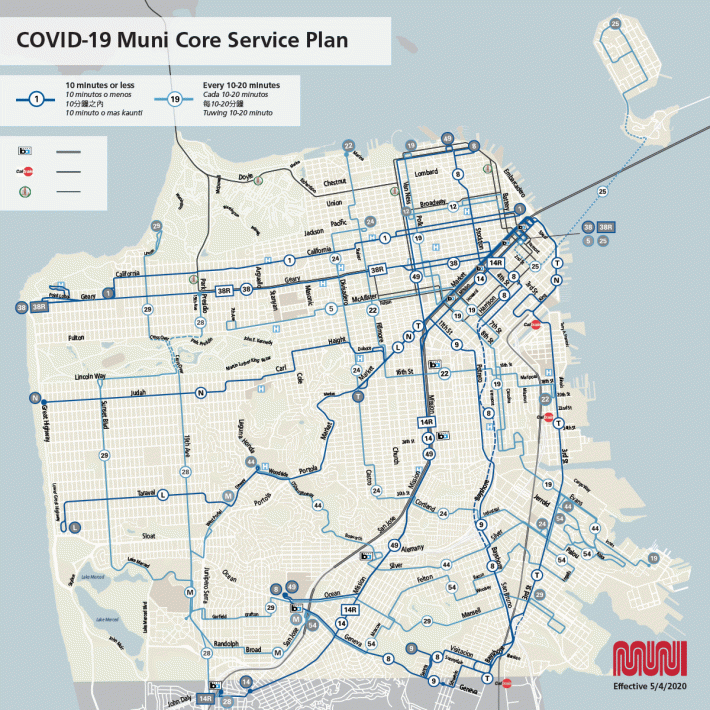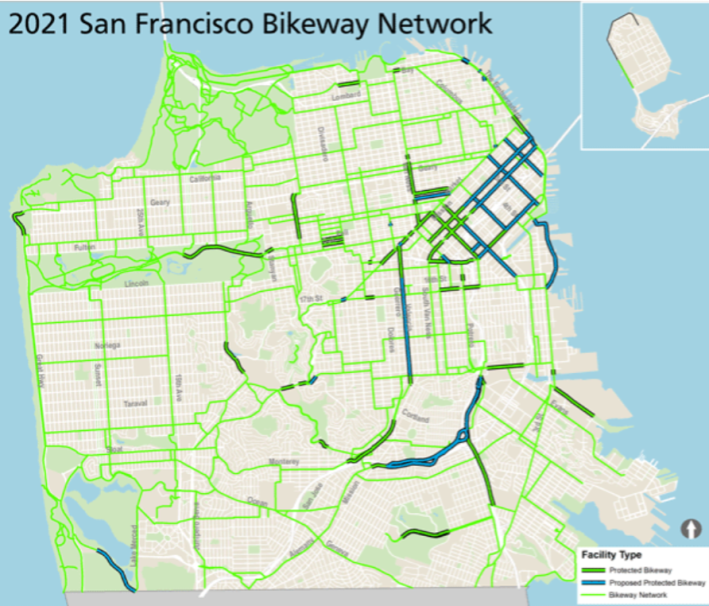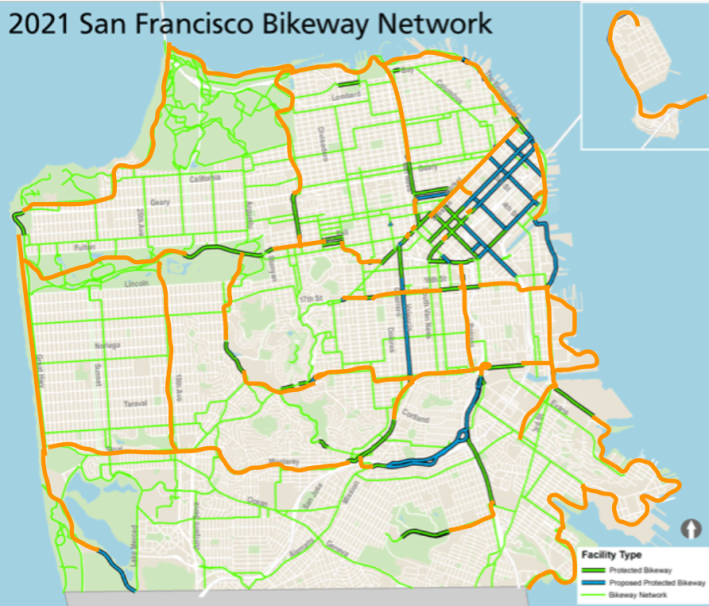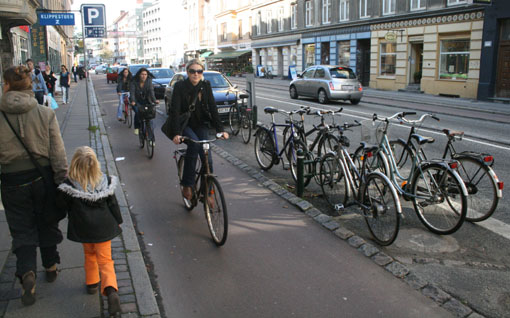Note: GJEL Accident Attorneys regularly sponsors coverage on Streetsblog San Francisco and Streetsblog California. Unless noted in the story, GJEL Accident Attorneys is not consulted for the content or editorial direction of the sponsored content.
A truly usable network of protected bike lanes, that will make all potential cyclists feel safe riding, must stretch uninterrupted, clear across San Francisco. But comparing current transit and future bike maps highlights the inadequacy of city efforts to get more people commuting by bike. This needs fixed quickly, or the city's economy may soon be in serious trouble.
First, take the SFMTA COVID-19 Muni Core Service transit map below. SFMTA did a good job of preserving core bus service in a terrible “doomsday” situation, as part of the city’s overall efforts to fight the pandemic during a period of huge operator shortages. SFMTA is urging that Muni only be used for essential trips that can’t be made using any other means of transportation. They created the core bus service map with the goal that everyone is within one mile of a bus route, and to have routes go to the major hospitals.

That's how the city defines "core" and "essential" bare-bone services when it comes to transit. Now compare it to the map of protected bike lanes (in double lines) proposed on the San Francisco Bikeway Network map below. It depicts the supposed "dream" map of protected bike lanes--20 miles of new additional protected bike lanes (in blue) that the mayor called for by 2021.

Compared to the core-route bus map, it's clear the city's plans for protected bike lanes are grossly inadequate.
If we want to effectively encourage San Franciscans to take more trips by bike and fewer by car, then clearly we need to set up a protected bike lane network with at least as much coverage as the core-route Muni map. This means a bike network that follows similar criteria, such as providing a protected bike lane within one mile of every person and a network of lanes that considers equity in providing good options in underserved areas. In other words, the city needs a protected bike lane network that provides complete, end-to-end, protected routes, not a patchwork of disconnected segments in just a few parts of the city.
Below is my take at what a minimal protected bike lane network map would look like, with additional protected routes in orange, to enable cyclists (and riders on electric-assist bikes) to really get around the city safely and confidently by bike.

SFMTA Director Jeffrey Tumlin stated recently that we can’t move more cars in the space we have, calling it a fundamental geometrical limit. However, as the lockdown is lifted, many Muni riders, afraid of contracting the virus on public transit, will start driving. Continued work-from-home will relieve some pressure on our streets, but as Tumlin put it, "...if San Francisco retreats in a fear-based way to private cars, the city dies with that, including the economy. Why? Because we can’t move more cars."
But we can move more bicycles.
And it's imperative that we do so, by quickly building a network of protected bike routes with rows of parked cars and/or Jersey barriers. And it is essential that these new lanes include protected intersections. As San Jose has shown, both protected bike lanes and intersections can be installed cheaply and quickly, in months not years. San Francisco's 'slow streets' program also gives a hint as to how quickly streets can change, with the right sense of urgency and political will.
Even if COVID-19 magically disappeared tomorrow, city budgets are already decimated. And the damage from climate change leaves our future still hanging in the balance. We must quickly build the low-cost infrastructure required to enable and entice more people to make their trips by bike. It's time to install a comprehensive, contiguous network of protected bike lanes that serves all of San Francisco.
***
Peter Belden lives in Potrero Hill and fell in love with biking as transportation after a family trip to Copenhagen. He is a member of the San Francisco Bicycle Coalition and an advisor for Safelanes.org.





